Here a solution to concatenate two or more statically-allocated arrays. Statically-allocated arrays are array whose length is defined at compile time. The sizeof operator returns the size (in bytes) of these arrays:
char Static[16]; // A statically allocated array
int n = sizeof(Static_array); // n1 == 16
We can use the operator sizeof to build a set of macros that will concatenate two or more arrays, and possibly returns the total array length.
Our macros:
#include <string.h>
#define cat(z, a) *((uint8_t *)memcpy(&(z), &(a), sizeof(a)) + sizeof(a))
#define cat1(z, a) cat((z),(a))
#define cat2(z, a, b) cat1(cat((z),(a)),b)
#define cat3(z, a, b...) cat2(cat((z),(a)),b)
#define cat4(z, a, b...) cat3(cat((z),(a)),b)
#define cat5(z, a, b...) cat4(cat((z),(a)),b)
// ... add more as necessary
#define catn(n, z, a ...) (&cat ## n((z), a) - (uint8_t *)&(z)) // Returns total length
An example of use:
char One[1] = { 0x11 };
char Two[2] = { 0x22, 0x22 };
char Three[3] = { 0x33, 0x33, 0x33 };
char Four[4] = { 0x44, 0x44, 0x44, 0x44 };
char All[10];
unsigned nAll = catn(4, All, One, Two, Three, Four);
However, thanks to the way we defined our macros, we can concatenate any type of objects as long as sizeof returns their size. For instance:
char One = 0x11; // A byte
char Two[2] = { 0x22, 0x22 }; // An array of two byte
char Three[] = "33"; // A string ! 3rd byte = '\x00'
struct {
char a[2];
short b;
} Four = { .a = { 0x44, 0x44}, .b = 0x4444 }; // A structure
void * Eight = &One; // A 64-bit pointer
char All[18];
unsigned nAll = catn(5, All, One, Two, Three, Four, Eight);
Using constant literals, one can also these macros to concatenate constants, results from functions, or even constant arrays:
// Here we concatenate a constant, a function result, and a constant array
cat2(All,(char){0x11},(unsigned){some_fct()},((uint8_t[4]){1,2,3,4}));
